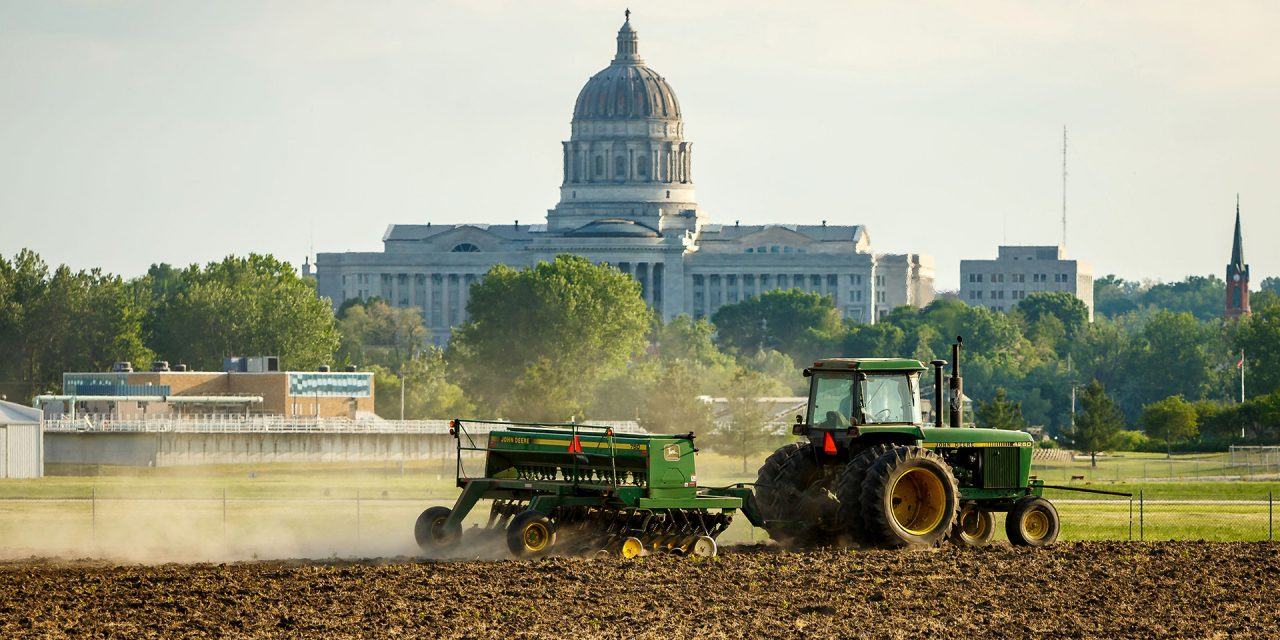Agriculture is an integral part of Missouri’s economic makeup. According to the Missouri Department of Agriculture, the Show Me State is home to nearly 88,000 farms, averaging 803 acres a piece, and the industry is valued at $93.7 billion.
Meagan Kaiser sat down with the Missouri Times to discuss the future of farming, including what the future may hold for farmers and what steps can be taken to ensure future generations will inherit those opportunities.

Kaiser is a Missouri farmer and soil scientist. She’s a member of the United Soybean Board and served as their Chair last year. Currently, she is the Chief Operations Officer of Perry Agricultural Laboratory based in Bowling Green. Over the past few years, Kaiser has become a voice for farmers across the country, advocating for sustainable farming practices and increasing economic opportunities for farmers.
One of the future markets for many Missouri farmers is biofuel and it has already taken root over the past few years. Biodiesel in particular has a deep-rooted history in Missouri. The Show Me State was one of the first states to jump into the biodiesel market. Biodiesel is created from the byproduct of Missouri’s largest crop, soybeans, making production on a large scale relatively easy compared to other states. Biodiesel is also a drop-in replacement, meaning that it can be used on existing diesel engines.
In the fall of 2022, Governor Mike Parson signed HB 3, which included a tax credit for biodiesel production. According to the Missouri Soybean Association, biodiesel production provides the state with $1.3 billion in economic impact.
Kaiser also mentioned other uses for soybean-based biofuel, including in-home heating. Other biofuel markets, like ethanol, have also grown in recent years. The market continues to grow into new fields as newer demands, like sustainable aviation fuel, appear.
“Could it be huge? Absolutely. Will it be huge? I really do think so,” Kaiser said.
Missouri’s continuing development of infrastructure also plays a role in the future of farming. Roads and ports are the most common modes of transportation for Missouri agriculture products. Integral improvements, like the I-70 expansion, are underway to improve the state’s highway system. But ports remain relatively left behind. An improvement of the state’s inland waterway system could lead to huge economic gains for Missouri farmers as MoDOT predicts that Missouri’s largest port export, coal, will soon be replaced by agricultural products. Kaiser mentioned inland waterway projects underway in other states, like a dredging operation in Louisana, that will help farmers transport more of their product.
Improvements to infrastructure for rural communities could also benefit farmers in the future. Rural broadband expansion has been an important topic in recent years for Missourians. But farmers need broadband for more than just browsing the internet. As farming equipment and techniques have advanced, farmers have become more reliant on collecting data to become more efficient. Tractors record planting and fertilizer data, and combines record harvesting data. Farmers can even track fuel usage during planting and harvesting. But without rural broadband, tracking and accessing this data becomes more difficult.
“It’s our ability to put all those tools together to make better data-driven decisions,” Kaiser said.
One of the most important ideas for the future of farming is simply making sure that the farm is healthy and will continue to be healthy for future generations.
According to Kaiser, soil testing and analyzing is a tool farmers use to make their farms sustainable and profitable. Just like how people get blood tests to help diagnose health issues, soil tests can identify what a farm needs to increase crop efficiency and crop yield. The testing also allows for more specific treatments for the soil. If a field needs more fertilizer, soil testing can reveal which part of the field needs more fertilizer. That part of the field can be treated as needed instead of the entire field, which increases overall efficiency for the farmer.
But soil health is more than just allowing a farm to grow more using less. Soil health is also about looking at water and air capacity to make the soil more resilient to drought. Soil health also includes looking at biological capacity as well, and making sure the soil is good for growing over time. To Kaiser, soil health is key for farmers who want to make a living and make sure their children can farm as well.
“We think generationally in agriculture. We want to make sure our farms are available for [our children] to live on and work on if they choose to in the future,” Kaiser said.
Agriculture is a central part of the Missouri economy and way of life, and it is only expected to grow in the coming years. With the development of new markets, improvements to infrastructure, and a focus on soil health, the future for the farmers in Missouri is teeming with new opportunities and growth.
Kelton is a 2023 graduate of the University of Missouri with a Bachelor of Arts in Political Science and a Bachelor of Arts in Religious Studies. He is a native of mid-Missouri and likes to write politics at both the state and federal levels. Kelton joined the Missouri Times in April 2022











